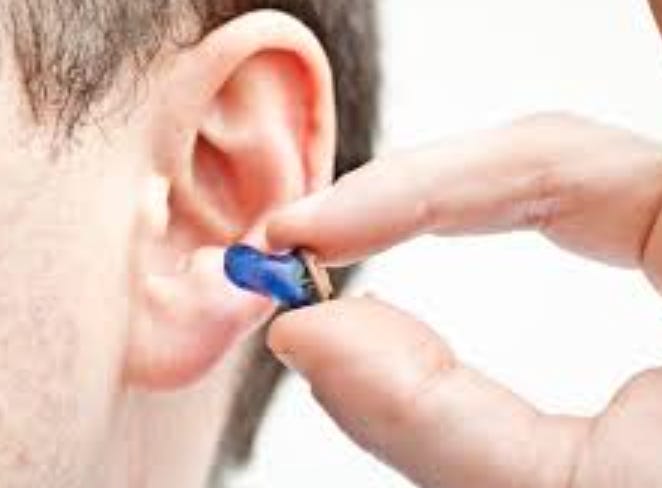Todays article is writen by guest author
János Tomics
So, why the delay?
As a hearing aid audiologist I often meet people who come to the clinic with mixed feelings. On one hand, they feel they have perfect hearing, and there’s nothing wrong with their hearing. (Actually, I can hear faint sounds better than my wife).
On the other hand they often experience those strange situations, where everyone mumble, or it is just difficult to pick up what’s been said.
Every time they have to ask people to repeat themselves, or turn up the volume on the television, or struggling to understand what the girl said at the till in the supermarket, all of those are little reminders that something is off.
Despite all of that, an average person would wait 7-10 years before they seek medical help regarding their hearing.
When I first learned about this it didn’t really make sense.
Why the delay?
When worry dresses like curiosity
When someone evaluates these mixed thoughts and feelings about what to do next ( a little decisional balance) some of those inner voices can shape what we do in a very effective way. They may say:
What if something is wrong with my hearing?
What if they say I am deaf?
Probably, I just didn’t listen.
Just pull yourself together, and concentrate!
I don’t want to get older.
I don’t want to look old!
It’s not too bad!
Maybe it could be better, also, it could have been worse.
I was wondering if I should have a hearing test. Sometimes I don’t hear things well, but I don’t think I have a problem.
Does this sound familiar?
Self stigma
According to the American Psychiatric Association, self stigma can be summarised as:
Negative attitudes, including shame, that people with …..
may have about their own condition.
Harmful effects of stigma can be reduced hope,lower self-esteem and increased psychiatric symptoms.
Don’t worry about it. Just wait!
I did a mini research to see what is the impact of self stigma some conditions:
Average waiting time before seeking help
Weight management (UK): 9 years
Dementia: 8- 52 months
Alcohol and drug use: 8-18 years
Diabetes: 50% of health care appointments missed due stigmatism
Mental disorders for young adults (Australia): Don’t seek help
Financial issues:12 months
When the inner voice amplifies the cost of change this much, people often delay the decision.
What helps? What works well?
Self stigmatism is a bit like having superpowers, and being able to read other people’s minds.
“I think, I know what they think. They think I am deaf/ old/ stupid/ hopeless”
How to best connect?
Engaging Engaging Engaging
When people have those inner conflicts for years, and now they are here to do something - they are vulnerable. And perhaps worried.
Open those questions and self-doubts with reflections and affirmations
Engagement helps to reduce their own nervousness about the situation, that they are now here with you
Accurate empathy: how well I understand what they are experiencing?
Confidence Ruler with a menu might help to normalize what they experiencing (Some people when experiencing hearing issues, may worry, and sometimes feel anxious. Others feel that this is part of life, and feel absolutely okay with this. Even when they are experiencing the same difficulties. What do you think, where would you put yourself on that list?)
Maybe connecting is the first step on the road to help them find their own ways to re-evaluate their situations and inner talk.
What do you think?
In what ways self stigma impacts your work with others?
How do you manage self stigma in your clinic, maybe even without noticing it?
János Tomics
Hearing Aid Audiologist
Thanks János! I’m certainly excited about your developing MI for audiologists!
And maybe sometimes in Hungarian as well! - Sky
If you aspire to develop this kind of skillfulness in your persoanl and professional relationships, I’m pretty sure that getting better at MI can help. We have free practice and classes as well as courses. Check them out below!
And Thank You! Again
100 More Days of MI is free. I’m super glad so many folks are enjoying the daily posts!
Offering your comments is free too, so please keep them coming! Send me an email or make a comment in the section below.
- Sky
Free MI Practice Sessions
Monday at 12pm ET (nyc time zone)
Fridays at 12pm ET (nyc time zone)
MI Practice Reserve Your Spot!
Free MI Snack (just a bite of MI)
Wednesdays at 11am ET (nyc time)
This week: Maintenance and Relapse
Sign Up. Here
Upcoming MI Classes
MI Basics: The Power of Listening, Fri, Nov 7, 2025
MI Intermediate: The Power of Change-Talk, Fri, Dec 5, 2025
MI Advanced: The Power of Whispers, Fri. Jan 9, 2025
These workshops are the perfect foundation
to get the most of our free practice sessions.
https://www.wv-mi.com/learning-mi
Pre-MINT TNT: Train the Trainer
Become a Guest Facilitator of our MI Practices
Waiting List
We really are all in this together
Sky Kershner, LPC, ALPS, LCSW, DMin
Assistant Professor, WVU School of Medicine
MINT Certified Trainer of Motivational Interviewing
AAMFT Approved Supervisor / Member IEDTA / PACT L2
304-220-0088 / www.wv-mi.com / the mi-ai practice space




Thank you Janós! I haven’t ever been able to put to words this thought “Self stigmatism is a bit like having superpowers, and being able to read other people’s minds.” That I always believed to be just a loop inside my head and those of clients I’ve worked with as well. I now can be more effective and more willing to approach this thought through self-engagement. Whether this thought is accurate or not doesn’t matter. Patience and curiosity by way of engaging, engaging, engaging is a path through. Self stigma can be limiting yet empowering and motivating too. There’s something “nudging” about self-stigma that helps change inner dialogue. Of course easier to notice in someone else. What a beautiful except Janós!
Thank you Janos for sharing today’s prompt with your personal experience and perspective. I particularly resonated with the theme of self-stigma when I worked with victims of domestic violence and sexual assault. Many of the cases were reported or revealed only after a long period of time. I once had a female client who was sexually assaulted by her uncle when she was around nine years old. She later developed Systemic Lupus Erythematosus in her teenage years, and the symptoms lasted for more than twenty years.
She never understood the connection between her illness and the sexual assault she had experienced at age nine until her doctor encouraged her to seek counseling. Through counseling, she discovered that the illness that appeared in her teen years was a manifestation of the trauma she had silently carried for years—her body could no longer contain the emotional pain, and it turned into physical illness.
Many cases like this, especially in my culture, are silenced by self and social stigma. Victims often suppress their pain, which allows the trauma to fester and shape their lives until they begin to realize that everything happens for a reason. That awakening—when they finally look at the true cause behind their story—often becomes the first step toward healing. Their curiosity and awareness then guide them into a new journey of rediscovery and self-compassion.